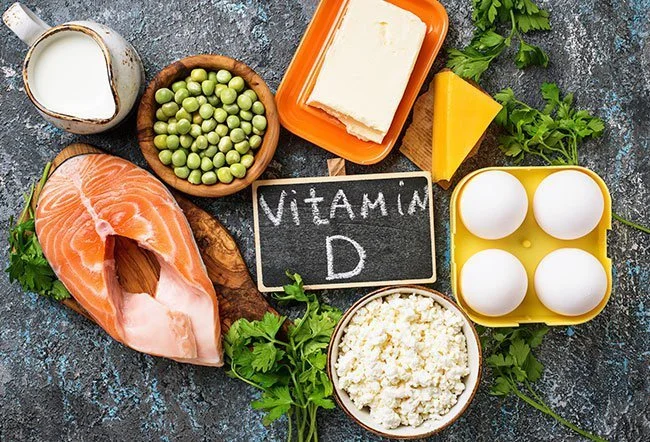Do I need to take vitamin D3?
Can you feel the joy of the spring sun on your skin? Is it lifting your mood? Are you loving the longer evenings? Is it giving you more energy to be outside, to take walks or do more exercise?
In Vitalis I conduct many blood tests to try to uncover what is holding my patient back or to figure out why they are low in energy. A very common result is that they are low in Vitamin D.
Strong sunlight is needed to create the ‘active’ form of vitamin D that our body uses to help our cells function normally. If you spend all day inside or if you are covered from head to toe in clothing and your skin never sees the sun then you will be low in vitamin D. Unfortunately, in the UK and Ireland, we just don’t get enough of this sustained strong sunlight, especially through the winter months. So if you live somewhere like the UK it’s likely you will be low in vitamin D too!
As humans originating in Africa, we have not yet evolved beyond our dependency on sunlight and therefore our dependency on Vitamin D.
Low vitamin D levels were first discovered to cause rickets in children. There are many studies into the link between low vitamin D levels and bowel cancer, breast cancer, prostate cancer, poor muscle strength, falls in older people and even mental illness. Many of these studies are observations and direct effects of low vitamin D are hard to prove unless very particular studies are performed and even then it’s hard to find clear patterns. But, we cannot ignore the fact that so many people in northern latitudes have low vitamin D and that in children low levels are associated with developing type 1 diabetes.
Another important fact to remember is that some of us will make ‘active’ vitamin D better than others in our bodies and it may mean that, even though we get sunlight and even take a vitamin D supplement, we may still have low levels of vitamin D.
It’s important to take a vitamin D supplement through winter, particularly in cloudy countries like ours, and get outside as much as possible so that the sun can do its job. You can get some vitamin D from foods like sardines, mackerel, salmon, eggs and liver.
The topic of Vitamin D is vast and I could never cover it all in a blog, but I will try and summarise the most interesting findings to whet your appetite for some further reading.
Interesting findings from research:
Buy SOLGAR® VITAMIN D3 (CHOLECALCIFEROL) TABLETS in the Vitalis Health Shop HERE.
1.Vitamin D supplementation to babies/toddlers reduced the risk of type 1 diabetes by approximately 30%.
2.Obesity: If you are overweight you most likely have a low vitamin D level compared to someone your age of normal weight. This seems to be the case for almost all humans.
3: Mortality: Low vitamin D levels are linked with increased risk of heart disease
4. Vitamin D may play an important role in brain development however there are few studies in this field. It comes back to taking a supplement during pregnancy and ensuring that your baby gets vitamin D from the beginning.
5. Vitamin D effects on nearly all cells in our immune system. Low active Vit D 3 could theoretically increase our risk of developing autoimmune disease due to the ‘housekeeping’ nature of vitamin D on our acquired immune system.
Summary
-You can have your vitamin D level checked on a blood test to find out what your level is.
- Children need Vitamin D3 too.
-Babies of mothers in the UK and countries at higher latitudes need vitamin D3 supplementation if they are breast fed (seems strange given that breast milk is best but if the mother is low in vitamin D then her breast milk will also be low in vitamin D.)
-Vitamin D acts on most cells in our body from brain cells to our intestines.
-Most studies show associations between low vitamin D and the disease they are studying but direct links are hard to prove for the statisticians.
-That said, national guidelines recommend Vitamin D3 supplements to pregnant mums, to breastfeeding mothers, to people with thin bones and to the population as a whole to improve general health.
- You can overdo it with vitamin D supplements and potentially cause disease, so follow the guidelines. High doses of vitamin D3 are not recommended. 600 to 1000 in a day should be sufficient.





